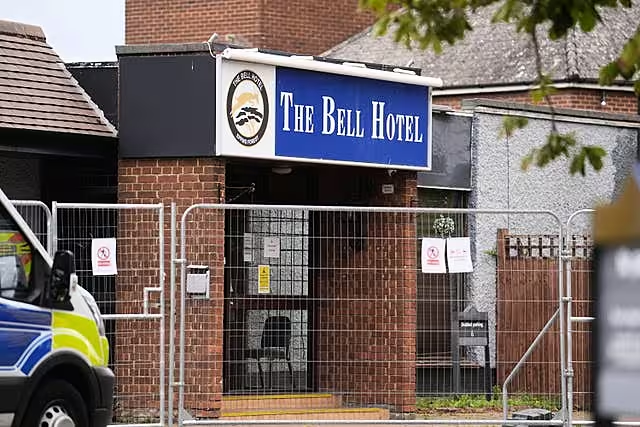
Nigel Farage is set to unveil a strategy for a massive expulsion of asylum seekers arriving in the UK on small boats, which the Reform UK party plans to implement if it comes to power.
Among the proposals expected to be announced on Tuesday are immediate detention on arrival, automatic detention and forced transfer to countries including Afghanistan and Eritrea.
The programme also envisages agreements with third countries, such as reviving the Conservatives' Rwanda initiative or moving refugees to British overseas territories such as Ascension Island as an alternative.
Mr Farage said the move could lead to hundreds of thousands of migrants being deported, with up to five special flights being organised every day.
The moves come amid growing controversy over the accommodation of refugees and a decision by the British government to appeal a court injunction against the use of the Bell Hotel in Epping, Essex.
The first steps of Reform UK will be to withdraw from the European Convention on Human Rights, repeal the relevant legislation and introduce a ban on small boat arrivals from making protection claims.
“The purpose of the law is to organise mass deportations,” the Clacton MP told The Times.
“The country is facing an unprecedented crisis. It threatens not only security, but also causes growing discontent that risks escalating into open unrest.
“The only way to stop the arrivals is detention followed by deportation.”
Keir Starmer's cabinet faces pressure over record numbers of Channel crossings in 2025 and rows over migrant resettlement.
According to the party's plan, those arriving on small ships will be immediately arrested, and centers with a capacity of up to 24,000 people will be built to accommodate them.
Agreements are being considered to return migrants to their countries of origin, including Afghanistan and Eritrea.

A restart of the Rwandan programme or an agreement with Albania to relocate people to third countries have also been mentioned as a possible component of the strategy.
Following the temporary injunction against eviction from the Bell Hotel, local councils under various parties are considering similar lawsuits.
The UK Foreign Office has announced it intends to appeal the court's refusal to allow the hotel to be used, while also challenging the restrictions imposed.
The owner of Somani Hotels also plans to appeal the ban on accommodating refugees on his property.
An increase in protest activity is expected near temporary accommodation facilities.
According to the law, the authorities are obliged to provide housing for people without means of subsistence, using hotels and large infrastructure facilities for this purpose.
Home Secretary Yvette Cooper said the department was committed to moving refugees out of hotels “as quickly as possible” in an orderly process.

South Norfolk authorities have announced plans by the Home Office to stop using the Park Hotel in Diss for accommodation. The management company has warned of possible closure if the categories of people accommodated change.
Council leader Daniel Elmer said: “The department has attempted to impose changes without consultation. While we welcome the decision, unfortunately families will now be moved elsewhere.”
An official representative of the Ministry of Internal Affairs confirmed: “As part of the reduction in the number of hotels involved, we do not plan to continue using this facility.”
The government also announced measures to combat smugglers who organise shipments across the strait.
Since the beginning of the year, a record number of crossings of the English Channel has been recorded – about 28 thousand, which exceeds the figures for previous years.
Conservative politicians said the Reform programme was a rehash of their ideas. “It is a rehash of our migration policy,” said shadow cabinet spokesman Chris Philp.
He added: “Farage has previously denied that mass deportations were feasible, and now he is presenting it as a new strategy. It is an unpredictable position.”
Sourse: breakingnews.ie






